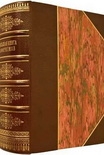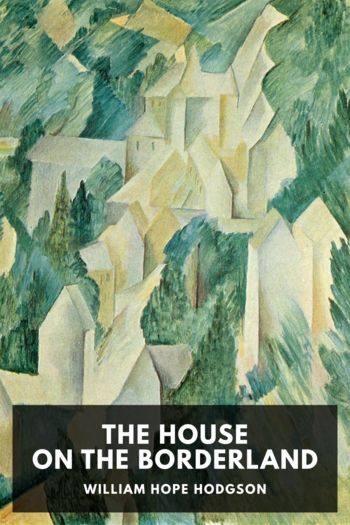Gluck by Diana Souhami (most interesting books to read .TXT) 📗

- Author: Diana Souhami
Book online «Gluck by Diana Souhami (most interesting books to read .TXT) 📗». Author Diana Souhami
Craig died in 1968 and Helen Beauclerck in 1969. The Maufes celebrated their diamond wedding in 1970 in their house, Shepherd’s Hill, in Buxted, Surrey. Prudence wore a diamond tiara, and Edward sported a diamond brooch on his lapel. There were 160 guests, a choice of excellent sweet or dry champagne and ‘the best fork luncheon’ Gluck had ever tasted.
Only Nesta seemed eternally young. In 1968, as a very rich widow (Seymour lived until he was ninety-two), she moved from Hawaii to Switzerland and so visited Chantry more frequently. She lived in luxury in a house ‘Le Tourbillon’, in Vaud, not far from Lausanne, with devoted servants, a cat and a dog. She had a hide-out, a chalet in the mountains ‘where the narcissi meet in great white waves in the spring’. She continued with her salon life, infinitely happier to be in Europe than Honolulu, and ever more sought after and adored. There were parties at the Villa Coward, inherited by Noel Coward’s lover, Graham Payn. Ginette Spannier wrote to tell Nesta that the only nice thing about 1973 was meeting her. When Edward Heath was Prime Minister, Nesta dined on occasion at 10 Downing Street and he was a visitor at Le Tourbillon, as were Joan Sutherland, Joyce Carey, Yehudi and Diana Menuhin and a host of those with talent, rank or money. When Gluck and Edith were her house guests, Nesta insisted on paying Edith’s fare, arranged for her to have a private sitting room and ensured that Monica Sterling, whose books Edith had years previously favourably reviewed, was among the guests.
Only Nesta could go on telling Gluck, right into old age, about her impossible behaviour:
… You interfere FAR too much in other people’s business and none of your arguments are anything but specious really. You mind your OWN business and if small unpleasantnesses happen and people forget to do what you want, weigh them against world importance AND GET ON WITH GIVING THE REAL YOU A CHANCE.
… I wish I could forget, but I can’t, that awful morning when some man came and wanted to see Edith, and you stood at the garden door and angrily screamed so that the whole neighbourhood could hear you. You were angry because she ‘hadn’t told you where she was going!’Good God! What price freedom? It was NOT YOUR BUSINESS to do anything but say quietly, ‘I think she may be in the garden. She probably won’t be long. I’m afraid I must get on with my work.’ NO ONE would have thought that rude. But your way must have made the wretched man even more uncomfortable than it did me …4
I love you so very much and I can’t bear to see you wasting so much of your energy on useless fears, for you have so little time to spare! – hence my abominable exasperation. Now. Do not waste your time writing or dictating pages. Don’t write anything. I understand all without any more word-flowing.5
Gluck could not discard her imperfect feelings along with the machine-made paints. The hardest cut of all was for her to see herself clearly. Among her jottings about the Aga, the housekeeping, her medication, the frogs and the fish in the ponds, paints, Steyning affairs and work in hand, she noted her state of mind:
That cell of most terrible solitary confinement – my brain.
We always know deep inside us what is right and if we go against this we always pay for it, maybe years later.
She went on campaigning, knowing how wasteful it was. In 1970 in the sub-post-office in Steyning she saw a greetings’ card of an ill-drawn girl with orange hair and frilly knickers. It was designed by one Gluck for Royle Publications. ‘I can only tell you with absolute truth,’ the true Gluck wrote to the solicitor, Michael Rubinstein, ‘that after first seeing this card I felt I would never be able to sign my own pictures Gluck again, which of course I am now determined to maintain my right to do after fifty years of use.’ She had already written a furious letter to the card’s creator – a Mr Dickens of Acacia Gardens, Kent, who had haplessly settled on the monosyllable as his nom de plume. ‘I must’, she wrote, ‘receive your immediate reply to this letter with your agreement that as from its receipt you will:
1 Cease using the nom-de-plume Gluck or GlÜck in any circumstances.
2 Notify Messrs Royle Publications Ltd to this effect.
3 Substitute another nom-de-plume for any of your work Messrs Royle Publications Ltd may already have in hand for publication, signed either Gluck or GlÜck, at the same time giving them a new nom-de-plume in substitution.’
Mr Dickens answered in bewildered tone, calling her variously Gluck Esquire and Mr Gluck, saying he thought that as his (her) style of work must differ from his own he doubted there would be confusion, but that he was quite prepared to make a feature of the umlaut, presenting it as two quite big little circles.
Gluck bundled the correspondence off to Mr Rubinstein. He drafted a temperate and conciliatory response telling Mr Dickens that enormous confusion and damage had occurred and asking him to drop, once and for ever, the use of Gluck or Glück.





Comments (0)